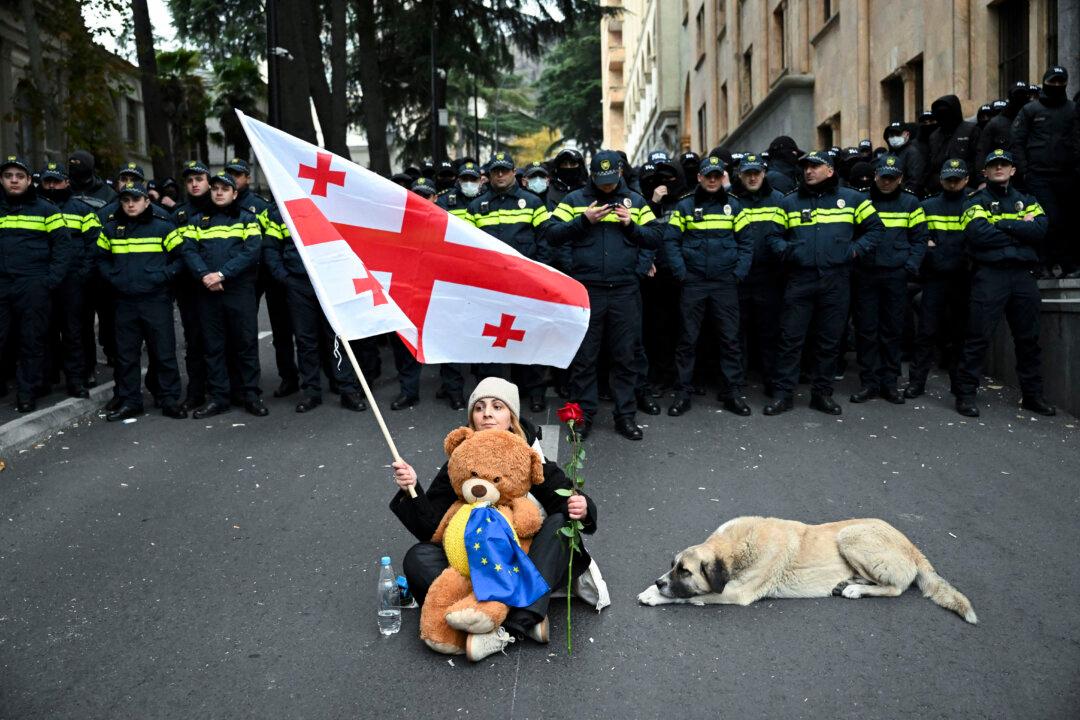Georgian Prime Minister Irakli Kobakhidze said on Nov. 28 that the government is suspending talks on European Union accession for four years, sparking widespread protests across the country.
In the capital, Tbilisi, thousands of protesters took to the streets on Thursday, blocking roads outside the parliament and the ruling party’s headquarters. Some of the demonstrators turned violent, with police using batons, tear gas, and water cannons to disperse the crowds.




